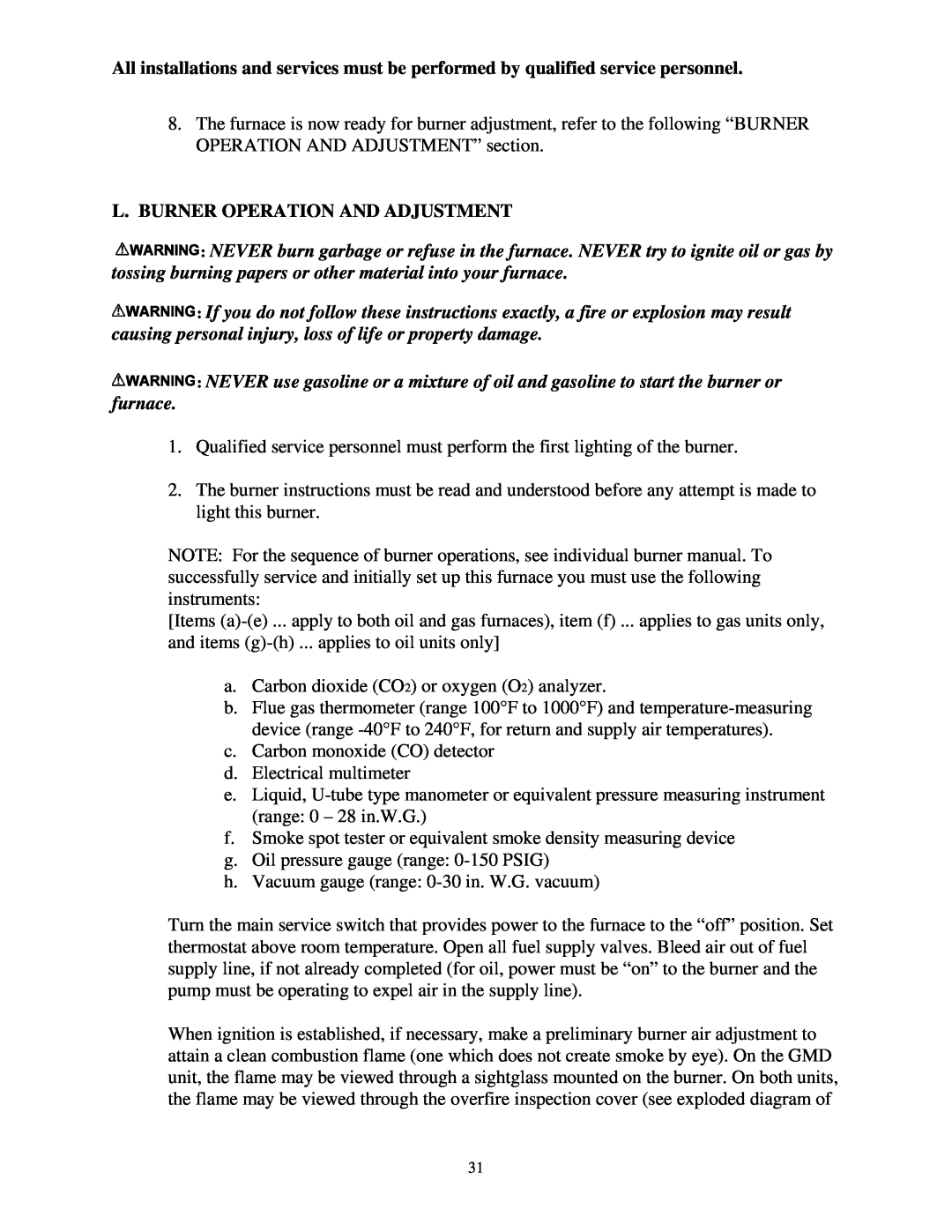
All installations and services must be performed by qualified service personnel.
8.The furnace is now ready for burner adjustment, refer to the following “BURNER OPERATION AND ADJUSTMENT” section.
L.BURNER OPERATION AND ADJUSTMENT
![]()
![]()
![]()
![]()
![]()
![]()
![]()
![]()
![]()
![]()
![]()
![]()
![]()
![]()
![]()
![]()
![]() : NEVER burn garbage or refuse in the furnace. NEVER try to ignite oil or gas by tossing burning papers or other material into your furnace.
: NEVER burn garbage or refuse in the furnace. NEVER try to ignite oil or gas by tossing burning papers or other material into your furnace.
![]()
![]()
![]()
![]()
![]()
![]()
![]()
![]()
![]()
![]()
![]()
![]()
![]()
![]()
![]()
![]()
![]() : If you do not follow these instructions exactly, a fire or explosion may result causing personal injury, loss of life or property damage.
: If you do not follow these instructions exactly, a fire or explosion may result causing personal injury, loss of life or property damage.
![]()
![]()
![]()
![]()
![]()
![]()
![]()
![]()
![]()
![]()
![]()
![]()
![]()
![]()
![]()
![]()
![]() : NEVER use gasoline or a mixture of oil and gasoline to start the burner or furnace.
: NEVER use gasoline or a mixture of oil and gasoline to start the burner or furnace.
1.Qualified service personnel must perform the first lighting of the burner.
2.The burner instructions must be read and understood before any attempt is made to light this burner.
NOTE: For the sequence of burner operations, see individual burner manual. To successfully service and initially set up this furnace you must use the following instruments:
[Items
a.Carbon dioxide (CO2) or oxygen (O2) analyzer.
b.Flue gas thermometer (range 100°F to 1000°F) and
c.Carbon monoxide (CO) detector
d.Electrical multimeter
e.Liquid,
f.Smoke spot tester or equivalent smoke density measuring device
g.Oil pressure gauge (range:
h.Vacuum gauge (range:
Turn the main service switch that provides power to the furnace to the “off” position. Set thermostat above room temperature. Open all fuel supply valves. Bleed air out of fuel supply line, if not already completed (for oil, power must be “on” to the burner and the pump must be operating to expel air in the supply line).
When ignition is established, if necessary, make a preliminary burner air adjustment to attain a clean combustion flame (one which does not create smoke by eye). On the GMD unit, the flame may be viewed through a sightglass mounted on the burner. On both units, the flame may be viewed through the overfire inspection cover (see exploded diagram of
31
